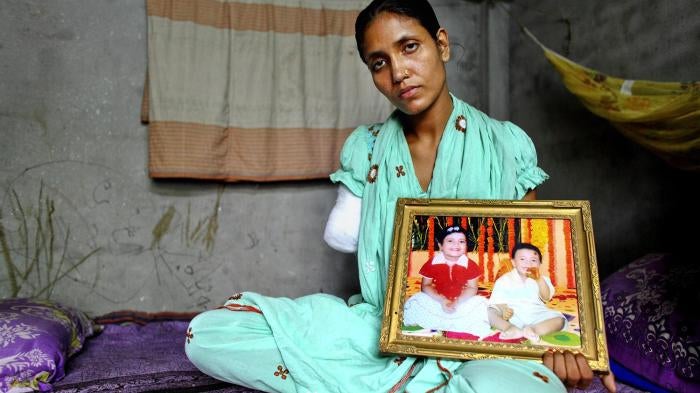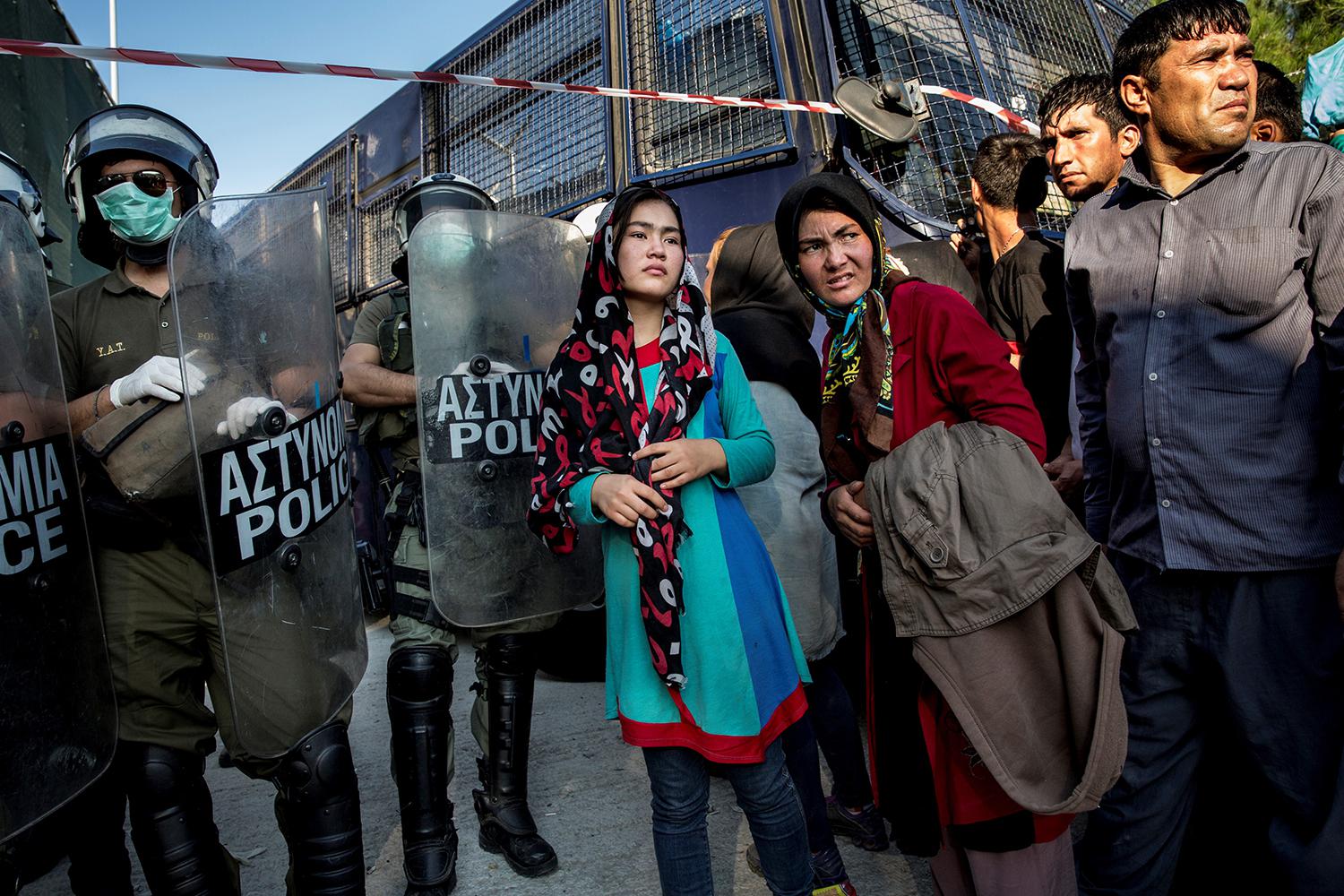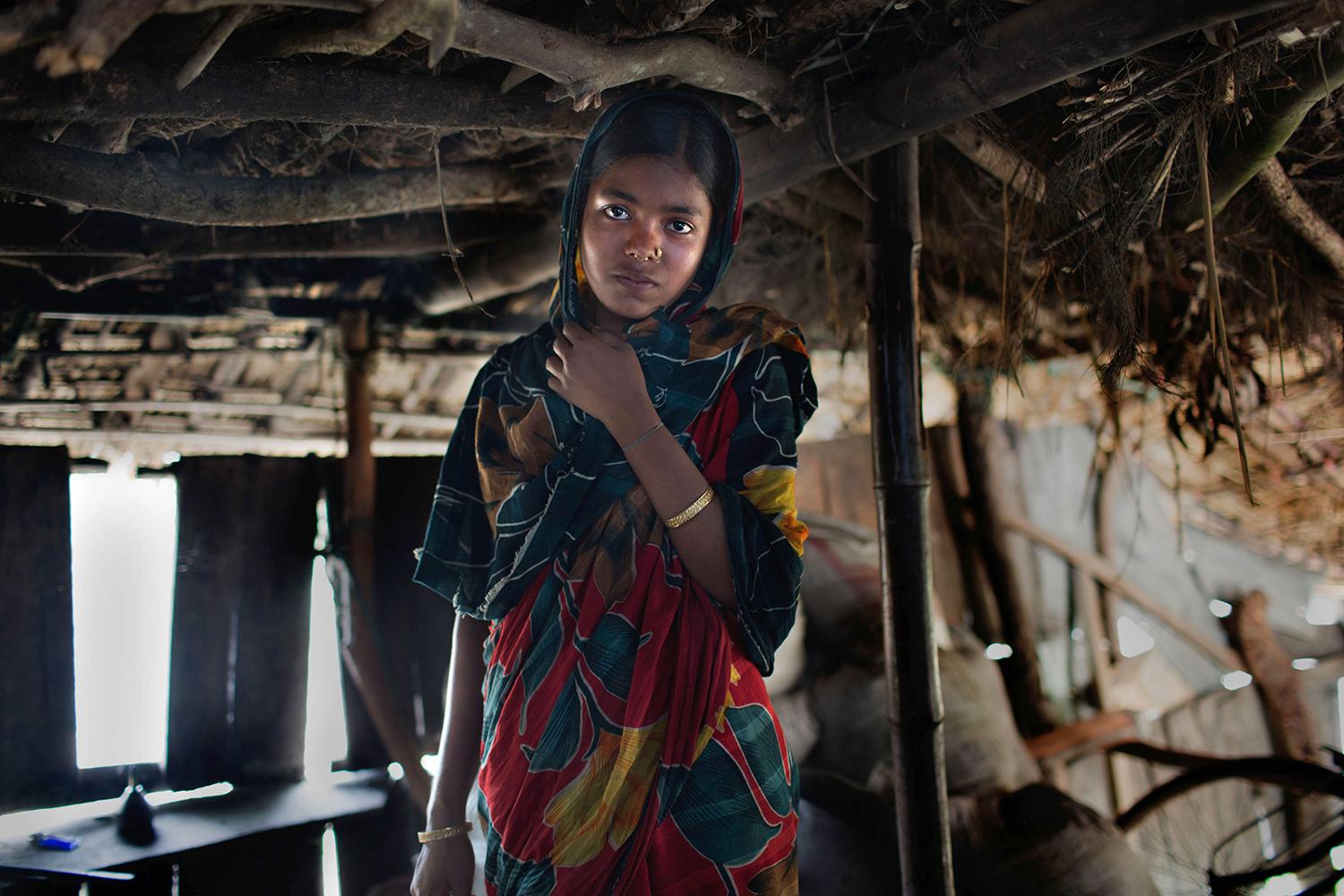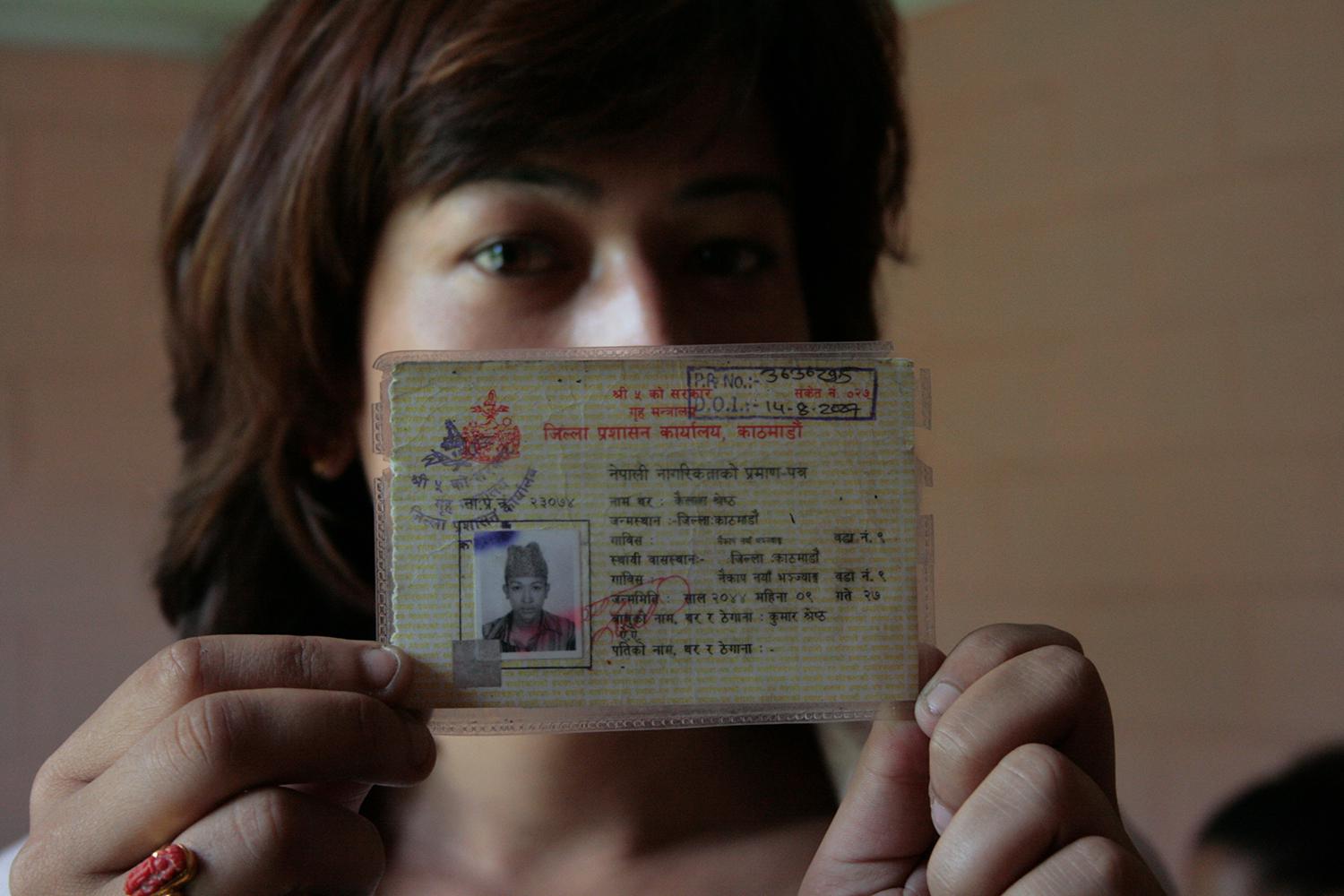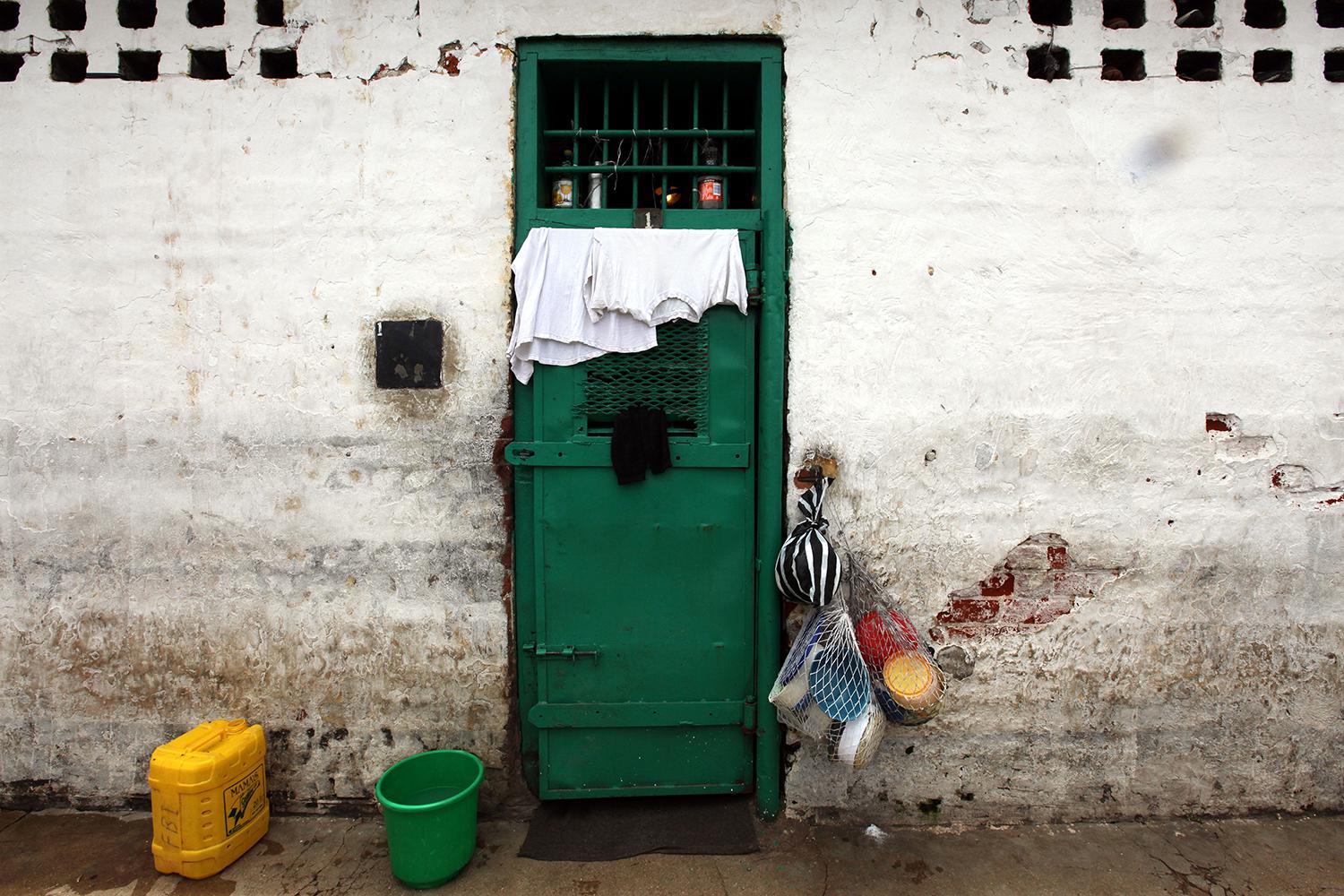Bangladesh headed in an authoritarian direction in 2015. Bangladesh has not had an effective parliamentary opposition since the Bangladesh Nationalist Party (BNP) boycotted national elections in 2014. In place of parliamentary debate, 2015 saw the BNP taking to the streets and the government under Awami League leader Sheikh Hasina cracking down on free expression and civil society.
In several instances, commuters were killed or injured when street protests turned violent. The frequent blockades and strikes also prevented many children from attending school or sitting examinations.
The government responded by deploying troops to quell the street violence, detaining thousands of opposition members, and restricting BNP leader Khaleda Zia to her office ahead of planned opposition protests. Key opposition leaders were arrested, accused of serious offenses, some of which were trumped up. Many remained in hiding, fearing arrest. Security forces committed serious abuses including killings, “disappearances,” and arbitrary arrests, with few investigations or prosecutions of those responsible.
Freedom of speech came under increasing attack. Media critical of the government continued to face closure, and editors faced charges and arrest. Four bloggers with atheist sympathies were hacked to death. Instead of denouncing the attacks, the government called on bloggers to use restraint in their exercise of free speech. Civil society activists and journalists faced lawsuits from ruling party supporters for criticizing the government, and contempt of court allegations for criticizing unfair trials.
Bangladesh made some progress in ensuring better safety regulations in garment factories following the collapse of the Rana Plaza building, which killed and injured thousands of workers in 2013. There were some improvements to labor laws in 2015, including the removal of arbitrary legal hurdles to unionize, but some factory owners still used threats and violence against union leaders to stymie union formation.
Security Force Abuses and Impunity
The ruling Awami League entered office promising zero tolerance for serious human rights abuses, but such abuses have continued unabated and in some areas have increased. The Detective Branch of the police, the Bangladesh Border Guards (BGB), and the Rapid Action Battalion (RAB) have been responsible for serious abuses, including arbitrary arrests, torture, enforced disappearances, and killings.
Opposition BNP spokesman Salahuddin Ahmed was abducted on March 10, 2015, from a friend’s apartment where he was in hiding. Witnesses said the abductors identified themselves as member of the Detective Branch, while other witnesses reported RAB vehicles in the area. In May, Ahmed was found in India and was charged by Indian authorities with illegal entry. He sought protection from the United Nations Refugee Agency (UNHCR), saying he had been abducted by unknown gunmen and feared for his life if returned to Bangladesh. The government failed to investigate the possible role of security forces in this and other disappearances, even in cases where family members identified the perpetrators to be members of RAB or police.
The opposition Jamaat-e-Islami party claims its activists were arrested and tortured by the police, including its Detective Branch, and says several members were killed by security forces. For instance, witnesses saw the police arrest Ahmadullah, a 22-year-old student supporter of the party, on January 31; his body was found the next morning. The police claimed that he was killed in crossfire between security forces and Jamaat supporters.
Several Jamaat supporters said that the police took them into custody and deliberately shot them in the knee or shin to disable them. Odhikar, a Bangladesh human rights group, documented at least 30 cases where people were shot in the leg—sometimes after arrest. The police claimed the shootings occurred during efforts to disperse violent mobs.
According to the Bangladesh human rights organization Ain O Salish Kendra, of the 135 people killed by security forces between January and September 2015, 90 were by the police, 33 by RAB, and the rest by other security agencies including the BGB.
In August, RAB was identified as responsible for the killing of three ruling party activists, leading to dismay among government supporters.
Attacks on Civil Society
The government increased its attacks on civil society organizations and critics in 2015, and drafted a new law restricting foreign funding to Bangladeshi groups.
The human rights organization, Odhikar, was regularly harassed, its access to foreign funding blocked. In August, after Odhikar published a report on extrajudicial killings, the police issued a statement warning that activities that harm the reputation of the security forces are considered acts of subversion. Criminal charges remain pending against its secretary, Adilur Rahman, and director, ASM Nasiruddin Elan, for allegedly publishing false information.
Ain O Salish Kendra (ASK), another prominent human rights organization, remained under pressure for reporting on enforced disappearances and extrajudicial killings. In May 2014, ASK reported an attempt by security forces to abduct its director of investigations, Mohammad Nur Khan. Groups working on indigenous and minority issues continued to report intimidating surveillance, and humanitarian groups working with the refugee Rohingya population faced ongoing restrictions.
Freedom of Expression
In several instances, critical editors and journalists were sued by government supporters. In August, university teacher Muhammad Ruhul Amin Khandaker was convicted for a 2011 Facebook comment blaming the prime minister for a rise in fatal traffic accidents. Later in August, journalist Probir Sikdar was arrested for a Facebook post that alleged to have “tarnished the image” of a ruling Awami League leader, a relative of prime minister Sheikh Hasina, and a member of her cabinet.
Journalists and civil society activists critical of Bangladesh’s war crimes tribunal (see below) faced contempt charges and trials. Journalist David Bergman was found guilty of contempt for criticizing the tribunal. When a group of 49 civil society actors signed a petition against his conviction, they were charged with contempt as well. Most of them offered unconditional apologies to avoid convictions.
Several bloggers and their publishers were hacked to death by Islamist militants in 2015 for promoting secularism. Ansar Al Islam, an insurgent group linked to Al-Qaeda, claimed responsibility and threatened further attacks. Although Sheikh Hasina promised to take action against the attacks, she also warned the bloggers against “hurting people’s religious sentiments.” The killings of three foreigners in October and November, this time claimed by the armed extremist group Islamic State (also known as ISIS), heightened anxieties over what appeared to be increasing violence in the name of religion.
Labor Rights
Intense international and national scrutiny following the collapse of the Rana Plaza factory complex in April 2013 led to efforts to shore up safety conditions and workers’ rights across the garment sector. International brands pledged to conduct fire and safety inspections across all factories they used in Bangladesh and to make their reports public. Concerns remained about inspections carried out by Bangladeshi authorities, however, as these were not made public. Union leaders and those seeking to join unions faced threats and opposition from factory managers and owners, including physical violence in some instances.
Labor conditions remain poor in other industries. The government continues its de facto policy of not enforcing labor and environmental laws against tanneries in Hazaribagh, a residential area of Dhaka. Workers in the tanneries continue to suffer from highly toxic and dangerous working conditions, and local residents complain of illnesses caused by the extreme pollution of air, water, and soil resulting from tannery operations. Some tanneries have begun to build new premises at a dedicated industrial zone in Savar, but production had not started, and the seriousness of the government’s commitment to better regulating tanneries there remained unclear at time of writing.
Early and Forced Marriage
Bangladesh has the highest rate of marriage in the world for girls under 15. Sixty-five percent of girls in Bangladesh marry before age 18. While the legal age of marriage for women is 18, the law is almost entirely unenforced. Local government officials often facilitate child marriages by collecting bribes in return for furnishing forged birth certificates.
The government failed in 2015 to take decisive steps to end the practice. Eliminating child marriage will require ending associated school costs that lead to drop-outs, despite free tuition; making schools responsible for helping to prevent child marriages; taking appropriate action against government officials who facilitate child marriage; strengthening criminal justice responses to child marriage and sexual harassment and threats against girls; improving girls’ access to information about family planning and to contraceptive supplies; and improving public awareness about the health and legal consequences of child marriage.
In 2014, Sheikh Hasina pledged to end marriage of children under age 15 by 2021 and under 18 by 2041. Her government subsequently proposed to lower the age of marriage for girls to 16.
Overseas Workers
Many Bangladeshis work in Persian Gulf countries as domestic workers. The government has sought to increase the recruitment of such workers without putting in place adequate protection mechanisms. Bangladeshi workers in the Gulf report being deprived of food and forced to endure psychological, physical, and sexual abuse. Bangladesh has set a minimum salary equivalent to around US$200, the lowest minimum salary of all sending countries–and its embassies in the region do not provide adequate protection and assistance to many Bangladeshi nationals there.
Refugees
Nearly 32,000 long-term Rohingya refugees live in camps administered by UNHCR along Bangladesh’s border with Burma. These refugees, and another 200,000 stateless Rohingya in Bangladesh, face often terrible conditions, and humanitarian groups seeking to provide assistance to them in border regions face highly restrictive conditions.
War Crimes Trials
The International Crimes Tribunal (ICT), set up to address laws of war violations committed during Bangladesh’s 1971 independence movement, continued its operations in 2015 without addressing serious procedural and substantive defects that lead to unfair trials.
In April, Mohammad Kamaruzzaman, a leading member of the Jamaat-e-Islami party, was hanged. His trial violated basic fair trial standards, arbitrarily curtailing the ability of the defense team to submit evidence, including witnesses and documents, and to challenge the credibility of prosecution witnesses by confronting them with prior inconsistent statements.
In July, the death sentence against BNP member Mir Qasem Ali Salahuddin Qader Chowdhury was upheld on appeal. Both he and Ali Ahmed Mohammed Mujahid were executed on November 21 after the president rejected their last-minute clemency petitions. Several other accused were awaiting final appellate judgments at time of writing, including Motiur Rahman Nizami, who was sentenced to death in October 2014.
Sexual Orientation and Gender Identity
Same-sex sexual behavior, dubbed “carnal intercourse against the order of nature,” is criminalized in Bangladesh. Lesbian, gay, bisexual, and transgender rights groups reported continuing threats, particularly after homophobic public comments by Islamic leaders.
In 2013, the cabinet issued a circular indicating legal recognition of a third gender, called hijra, a traditional cultural identity for transgender people who, assigned male at birth, do not identify as men. The third gender status came with no official definition but could ostensibly accord hijras education, health, and housing rights. However, the decree did not indicate any process by which legal recognition as a third gender should be conferred. In December 2014, a group of 12 hijras were selected for a government employment scheme, and in early 2015 they were subjected to invasive and abusive exams as part of the hiring process. The hijras said they were asked humiliating questions about their bodies, and some reported that the physicians in charge of the exams called them “disgusting” and then instructed hospital janitors and security guards to conduct physical exams, which included touching their genitals. Shortly after the medical exams, the hijras’ names were exposed in a newspaper article that declared them impostors because they were “really men.” The 12 were denied their employment positions and report increased harassment from neighbors.
Key International Actors
In June, Bangladesh and India signed a border agreement which allowed the two countries to exchange small land enclaves; prior to the agreement, people living in the enclaves had been effectively stateless, many without legal title to their property.
Influential bilateral partners, including the United States, United Kingdom, and India failed to press for an end to government repression of the political opposition and civil society. These and other countries welcomed the government’s efforts to curb extremist groups but failed to demand proof or challenge its claims that opposition political parties were engaged in “terrorism,” a claim it used to justify attacks on opponents.
The US Department of Justice funded and trained an internal investigations program within RAB, but the program produced no human rights prosecutions or convictions, and the US said little publicly to signal the importance of RAB accountability.
India pledged in 2012 to prosecute members of the Border Security Force for serious abuses against illegal Bangladeshi migrants crossing the border, but made little progress in 2015.
After intense international and national scrutiny following the collapse of the Rana Plaza factory complex in April 2013, two large international cooperative agreements–one involving largely European companies (Bangladesh Accord) and the second involving largely North American companies (Alliance)–pledged to conduct fire and safety inspections across all factories they use in Bangladesh. However, when the accord pushed for labor law reforms, the government insisted that the accord’s mandate was restricted to safety inspections. The US refused to reinstate Bangladesh’s GSP plus status, arguing that it had not made sufficient improvements in labor sector reforms.
